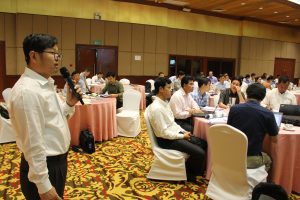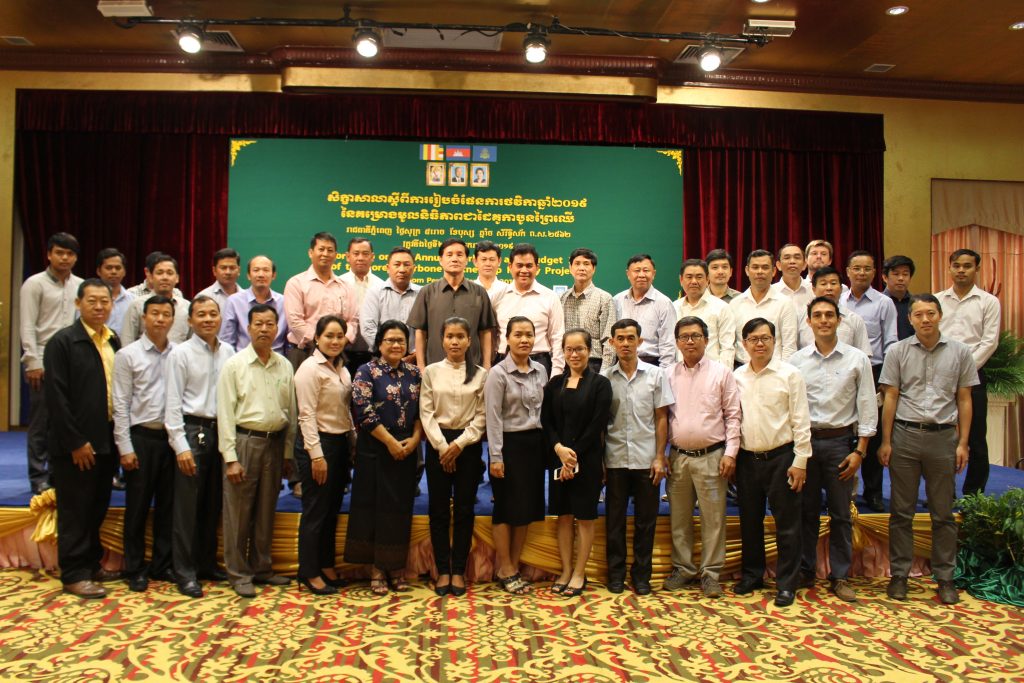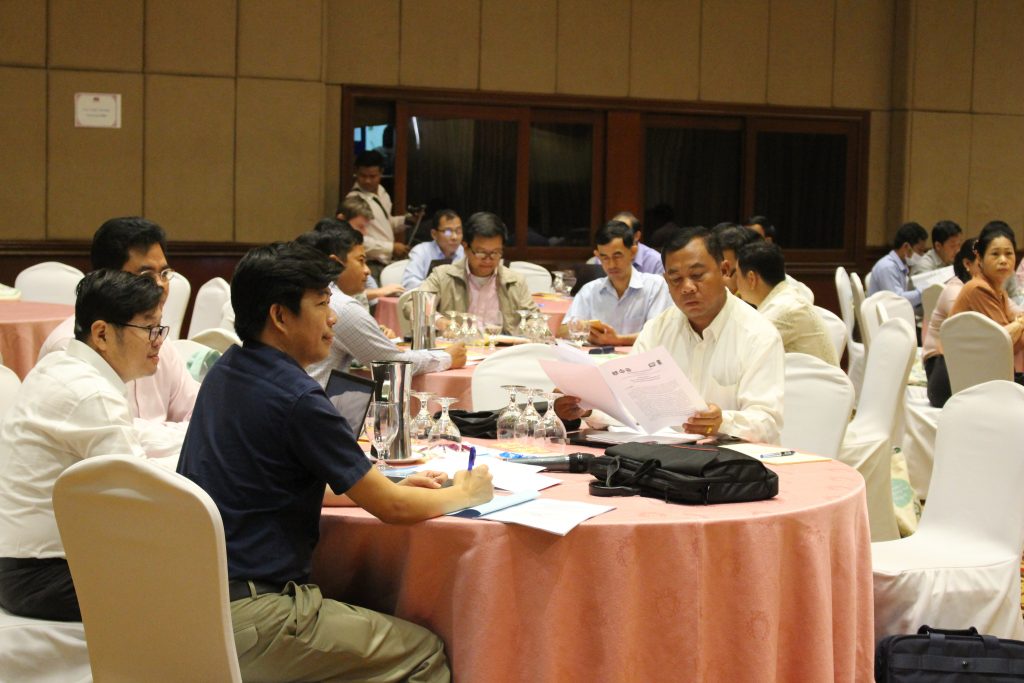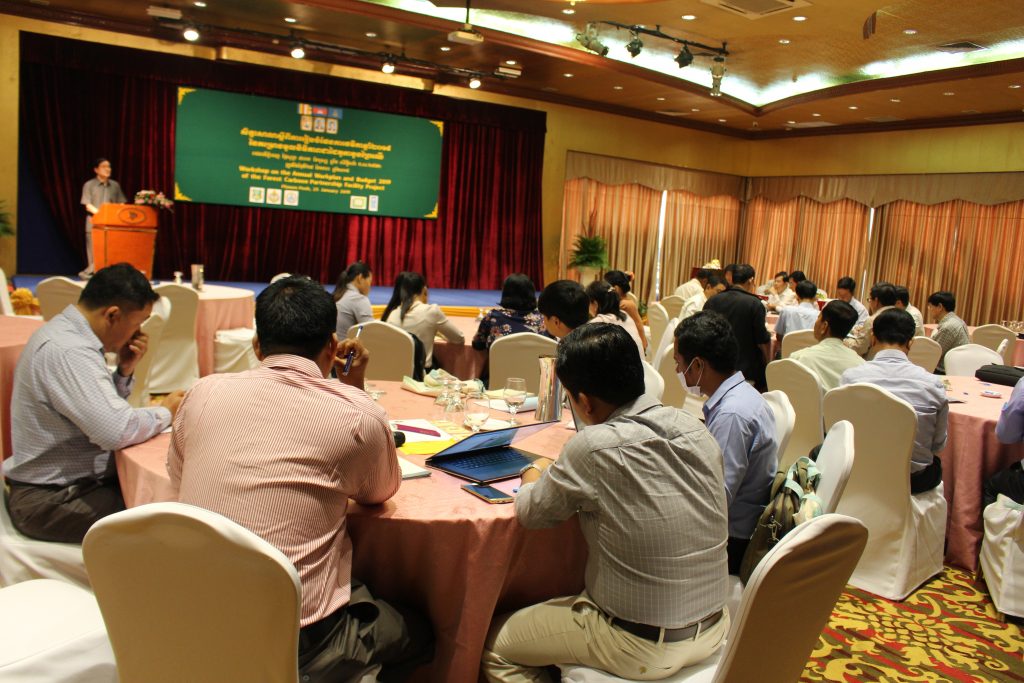Phnom Penh, 25th January 2019: About 40 officers from relevant ministries and  institutions, who are members of REDD+ Secretariat, REDD+ Technical Teams, Gender Group and Consultations Group, joint the workshop in Phnom Penh to prepare 2019 annual workplan for REDD+ programme. Lessons learns and progress in 2018 were also discussed to inform a better plan for 2019.
institutions, who are members of REDD+ Secretariat, REDD+ Technical Teams, Gender Group and Consultations Group, joint the workshop in Phnom Penh to prepare 2019 annual workplan for REDD+ programme. Lessons learns and progress in 2018 were also discussed to inform a better plan for 2019.
It was concluded that Cambodia will focus on designing REDD+ implementation approaches for subnational level and developing a national methodology to nesting the current and future REDD+ subnational efforts into a single national mechanism. Moreover, the REDD+ technical secretariat will deepen its efforts to complete the four Warsaw requirements for the UNFCCC within this year
Since 2014, Cambodia REDD+ Programme has received assistant from Forest Carbon Partnership Facilities that aims to support the Royal Government of Cambodia to be ready for REDD+ implementation, building capacities of forest related institutions, civil society and other stakeholders, developing strategies and mechanism that contribute to reduce the deforestation and forest degradation towards the implementation of effective and sustainable forest management.
According to Dr. Khorn Saret, Head of REDD+ Secretariat, the overall progress of the project in 2018 has been achieved satisfactorily. “Most of the REDD+ activities are in line with proposed targets, especially the support on development of Action Plans for the National Strategic Management of Protected Areas and Production Forest Strategy. A wide-ranging outreach events were conducted for subnational administration and community networks. This is a major account for subnational capacity building”.
Apart from that, the four Warsaw requirements and Biennial Updated Report (BUR) under UNFCCC to enable Cambodia applying for result-based payment are being finalized. “Cambodia is one of the advanced countries in South-East Asia in fulling the Warsaw requirements. We have already developed the National REDD+ Strategy, Forest Reference Level, and National Forest Monitoring System. What are left over, yet quite close to finalization in early 2019, are the Safeguard Information System (SIS) and the BUR”, said Dr. Khorn Saret.
According to Mr. Leng Chivin, FCPF Project Manager, the core elements under SIS and BUR are completed, only waiting for their assemblage. For the SIS, the technical team has already reviewed policies, laws and regulations; assessing environmental and social impacts of potential REDD+ interventions and drafting information needs for the system. Regarding BUR, the major key component is the Greenhouse Gases inventory (GHG-I) which first draft is expected to be shared by GDANCP in February 2019.
While focusing on finalizing the Warsaw Framework requirements1, the country is moving toward designing approach for REDD+ implementation at subnational level. Participants in the workshop raised some significant views on whether going for landscape, jurisdictional/provincial or hybrid approach. Through a fruitful discussion, it was agreed that though REDD+ result is at a national scale, the implementation should be site specific based on important forest landscape. After site selection, the implementation will be at jurisdictional approach as natural resource governance is being decentralized.
This year, the project also focuses on developing the REDD+ nested system. The development is still at an infant stage, but the concept is clear. It aims to create a holistic approach that allows all projects and initiatives across the country implement REDD+ in consistent to national system. This is to promote effective forest management, avoid double counting and promote clear benefit sharing at all scales.
The workshop ended up with vital strategic advice for implementing 2019 workplan. Follow up on that, each relevant technical group need to seek close collaboration with relevant stakeholders to comprehend the plans and ensure effective implementation.



